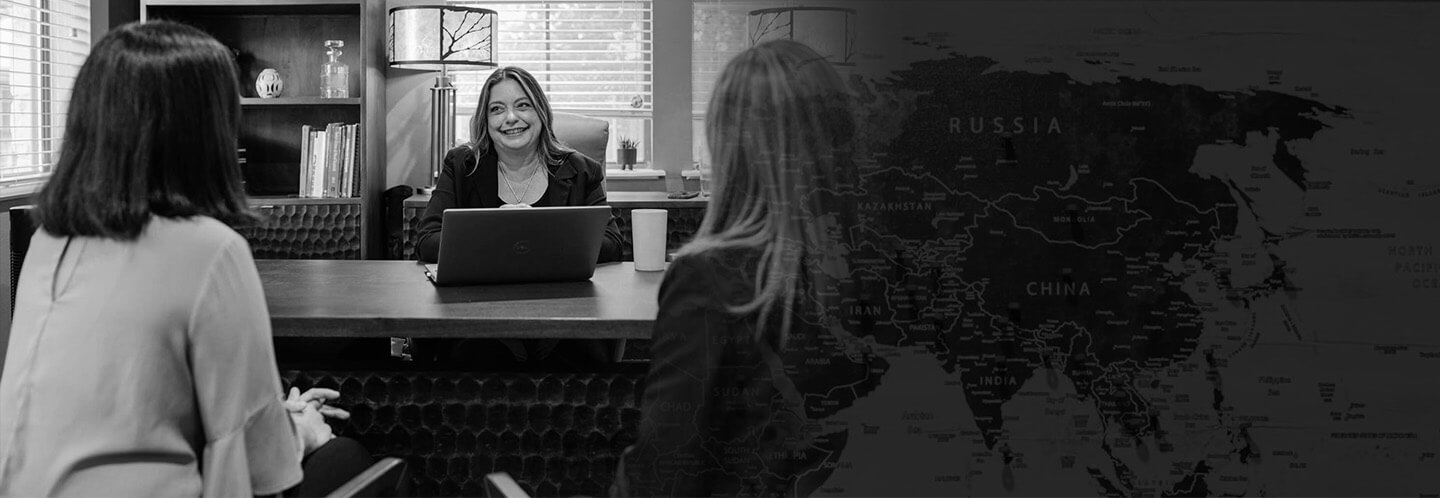
j sparks law
Austin Violence Against Women Act (VAWA) Attorney
What is the VAWA?
- Congress, in the 1990s, provided a path for noncitizens who have been abused by a U.S. citizen or lawful permanent resident relative to petition for themselves for immigration status without the participation, consent, or knowledge of their abuser.
- This law has enabled survivors of abuse to continue to seek immigration status in the United States without the fear that their abuser will use their lack of immigration status to coerce, harm, intimidate, or control them.
- Survivors of abuse can petition for VAWA classification for themselves and also for certain family members.
- Survivors may file a petition on Form I-360, and if the petition is approved, they will be placed under something called Deferred Action, which provides protection from deportation or removal.
Who is eligible to file a VAWA petition?
- Spouses of U.S. citizens or spouse of permanent residents may petition themselves for VAWA classification if they were abused and subjected to extreme cruelty during the marriage. The survivors unmarried children may be included if the children are under 21.
- Abused parents of citizen and resident children are also covered under VAWA.
- Abused children are protected as well, but they must file before a certain age.
- If you were abused during your marriage, but your spouse was not a citizen or resident, there may be other laws you can benefit from.
- Spouses abused by H-1B visa holder may qualify for work authorization documents, for example.
- Spouses abused by undocumented immigrants may qualify for a U visa if the survivor helped law enforcement in the investigation and or prosecution regarding the abuse.
If I leave my abusive spouse, can I still apply?
- Yes. If you are able to find safety from abuse, please do so as soon as possible. Leaving the abusive relationship does not hurt your chances of approval just because you no longer live together. The law does not require that you live together, and it does not require that you leave the abusive home either.
- However, if you divorce, you must file the I-360 VAWA petition within two years of your divorce.
- If you remarry at any time, you become ineligible to self-petition under VAWA.
What are the legal requirements for VAWA?
- You do not have to be a woman. You can be a man or have any gender identity and still qualify.
- You must have a “qualifying relationship” with the abusive U.S. citizen or lawful permanent resident, such as:
- Spouse or former spouse of an abuser
- Child of an abuser
- Parent of an adult abuser
- You have been subject to battery or extreme cruelty by your abusive U.S. citizen or lawful permanent resident relative.
- You lived with or have lived with your abusive U.S. citizen or lawful permanent resident relative
- If your abuser is your spouse, you married the abuser in good faith, intending at that moment to establish a life together as a married couple, even though the marriage did not work out.
- You are a person of “good moral character”
Can I obtain a work permit or green card through VAWA?
- VAWA petitions that are approved state that the survivor is in Deferred Action status, and this makes the survivor eligible for a work permit.
- Most often, the cases of survivors of abusive citizens move much faster through the immigration system than cases of survivors of U.S. residents.
- If your abuser is a citizen, you can file your green card application at the same time as your VAWA I-360 petition, and you can also include a work permit application in your mailing.
- If your abuser is a U.S. resident with only a green card, you cannot submit your green card application until your priority date is shown to be current in the Department of State Visa Bulletin.
- A qualified immigration attorney can help you determine when you are eligible to file for your own work permit and green card.
Our Results Speak for Themselves
We Treat Our Clients Like Family
Deported Honduran National’s Case Reopened
Deportation Case Terminated
Man Previously Tortured by Police in His Country Was Awarded Protection
Protection Won for Torture Survivor
Juveniles Facing Deportation Petition for Special Immigrant Juvenile Status
Removal Proceedings Closed
Child Sexual Abuse Victim Appeals for Asylum in Court
Victim of Child Sexual Abuse Granted Asylum
College Student Was Arrested for Possession
Client Released and Case Dismissed
Entered the U.S. Illegally
Parole Awarded to Mother of Soldier
Family Suffered Interrogation and Arrest in West Africa
Asylum Granted
Foreign Husband Petitions for Provisional Waiver
Family Suffered Interrogation and Arrest in West Africa